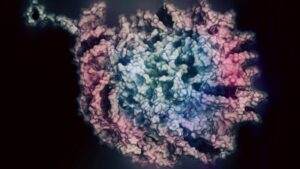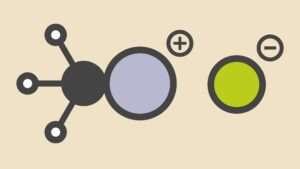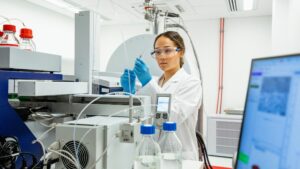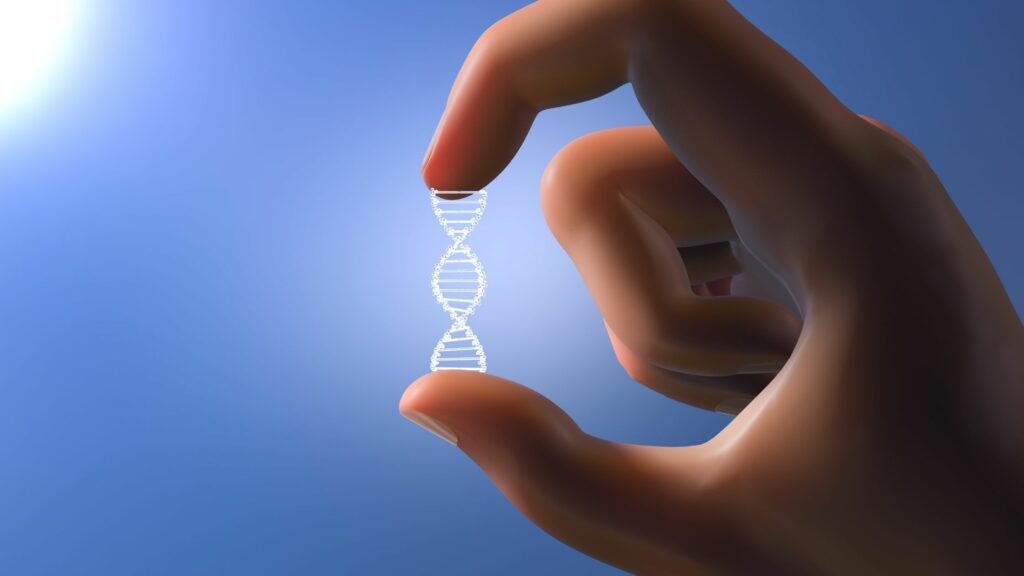Epigenetics is a relatively new area of study that is gaining traction as we learn more about the role that our environment and lifestyle play in determining our health. Epigenetics is the science of how our genes turn on and off, and it is incredibly important in determining whether or not we develop diseases like cancer. In this blog post, we will discuss what epigenetics is, and explore how our environment and lifestyle can affect our genes. We will also talk about some of the latest research on epigenetics and disease prevention.
Contents
What Is Epigenetics?

Epigenetics is the study of how our environment and lifestyle can affect our genes. In other words, it’s the study of how our choices can impact our health and well-being.
So far, epigenetics has shown us that some diseases cause by changes in gene expression, rather than changes in the actual DNA sequence. For example, some cancers cause epigenetic changes that turn on genes that promote cell growth.
We’re just beginning to scratch the surface of what epigenetics can teach us. But already, it’s clear that our lifestyle choices can have a big impact on our health and well-being. So if you want to live a healthy life, make sure to take care of your body and mind!
What Environmental Factors Influence Epigenetics?

There are a variety of environmental factors that can influence epigenetics, including diet, stress, toxins, and exercise.
Diet
Diet is perhaps the most important factor influencing epigenetics. The nutrients we consume can affect gene expression and the function of our cells. For example, a diet high in antioxidants has been shown to help protect against age-related diseases by reducing inflammation.
Stress
Stress is another important factor that can influence epigenetics. Chronic stress has a link to an increased risk of developing diseases such as heart disease, diabetes, and cancer. This is likely because chronic stress alters gene expression and leads to inflammation.
Toxins
Toxins are also thought to play a role in epigenetics. Exposure to toxins such as cigarettes smoke, pesticides, and heavy metals has a link to an increased risk of developing diseases. This is likely because these toxins can alter gene expression and lead to inflammation.
Exercise
Exercise is also thought to influence epigenetics. Regular exercise has been shown to help protect against age-related diseases by reducing inflammation. Exercise is thought to do this by altering gene expression and increasing the production of antioxidants.
The take-home message here is that our environment and lifestyle can have a significant impact on our genes. By making healthy choices, we can help protect ourselves from disease. And, by understanding how our environment affects our genes, we can make more informed decisions about our health.
What Are the Implications of Epigenetics?
The implications of epigenetics are far-reaching and potentially very exciting. If we can learn to control gene expression, we may be able to prevent or treat a variety of diseases. We may also be able to slow down the aging process. In addition, epigenetics could help us to understand why some people are more susceptible to disease than others.
The potential implications of epigenetics are endless and researchers are just beginning to scratch the surface. As we learn more about how our environment affects our genes, we will be better equipped to make choices that promote good health and protect us from disease.
Influence Gene Expression

- One way that epigenetics can influence gene expression is by methylation. Methylation is a process by which a methyl group (a carbon atom with three hydrogen atoms attached) adds to DNA. This methyl group can turn off genes, or prevent them from expressing
- Methylation patterns can influence by many different factors, including diet, stress, exposure to toxins, and even exercise. These patterns can pass down from one generation to the next, which means that the effects of epigenetics can last for many generations.
- So, what does all this mean for you? Well, it means that your lifestyle choices can affect your genes! If you want to keep your genes healthy, make sure to eat a healthy diet, exercise regularly, and avoid exposure to toxins.
- One interesting example of how epigenetics can influence gene expression is in identical twins. Identical twins have the same DNA sequence, but they often have different methylation patterns.
- This can lead to one twin expressing certain genes while the other does not. Studies have shown that identical twins are more likely to have different methylation patterns if they live in different environments. This suggests that the environment can influence which genes express, even if the DNA sequence is the same.
Affect Mental Health

It is increasingly clear that epigenetics plays a role in mental health. For example, exposure to abuse or neglect in childhood can lead to changes in gene expression that make someone more vulnerable to developing psychiatric disorders later in life. Similarly, studies have shown that people who smoke cigarettes or exposure to other environmental toxins are more likely to experience changes in gene expression that increase their risk for psychiatric disorders.
These findings suggest that our environment and lifestyle can have a significant impact on our mental health and that the choices we make early in life can affect our mental health later on. Therefore, it is important to be aware of the potential risks and take steps to protect your mental health throughout your life.
Epigenetics Affect Stress

Chronic stress can have a major impact on our health, both physically and mentally. According to the American Psychological Association, chronic stress is “the body’s response to demands that exceed its ability to cope.” When we experience chronic stress, our bodies are in a constant state of fight-or-flight, which can lead to several health problems.
Recent studies suggest that one way chronic stress may affect our health is through epigenetics. Epigenetics is the study of how gene expression can be affected by factors outside of the DNA sequence itself. In other words, it’s the study of how our environment and lifestyle choices can influence the way our genes are expressed.
How Can Epigenetics Help In Healing Diseases?

Epigenetics help in healing diseases by providing a better understanding of how our environment and lifestyle affect our genes. It can also help to identify potential treatments for diseases that cause by epigenetic changes.
It cures diseases in many ways, some ways are:
- Reversing the epigenetic changes that lead to disease
- Developing new treatments based on the epigenetic changes that associate with disease
- Preventing diseases by modulating the epigenome to reduce the risk of developing the disease.
This is done by:
- Studying how environmental and lifestyle factors can influence gene expression
- Identifying potential biomarkers for disease risk
- Developing new therapies to target specific epigenetic changes.
So Epigenetics not only helps us understand how our environment and lifestyle affect our genes, but also provides potential ways to heal diseases.
Difference Between Genetics And Epigenetics
Most people are familiar with the concept of genetics. Genetics is the study of how traits pass down from parents to their children. Epigenetics, on the other hand, is the study of how environmental and lifestyle factors can affect gene expression.
In genetics, the focus is on the DNA sequence itself. In epigenetics, the focus is on the chemical modifications that can occur to DNA (and other molecules involved in gene regulation). These modifications can turn genes on or off, and they can pass down from one generation to the next.
Genes are like the blueprint for our bodies, but epigenetics is like the construction crew that builds the house according to that blueprint. Epigenetic changes are heritable (they can pass down to future generations), but they’re not permanent. That means they can reverse the environment or lifestyle factors that caused them to change.
It’s important to remember that genetics and epigenetics are not mutually exclusive. They both play a role in how our genes express. And, they both play a role in our health and well-being.
Conclusion
In conclusion, epigenetics is a complex and fascinating field of study with implications for our health, well-being, and even our personality. While we are not yet able to change our DNA, we can influence how it expresses through lifestyle choices and environmental factors. With further research, we may someday be able to harness the power of epigenetics to prevent or treat diseases, improve our mental and physical health, and even increase lifespan.
A Word From Therapy Mantra
Your mental health — Your psychological, emotional, and social well-being — has an impact on every aspect of your life. Positive mental health essentially allows you to effectively deal with life’s everyday challenges.
At TherapyMantra, we have a team of therapists who provide affordable online therapy to assist you with issues such as depression, anxiety, stress, workplace Issues, addiction, relationship, OCD, LGBTQ, and PTSD. You can book a free therapy or download our free Android or iOS app.


